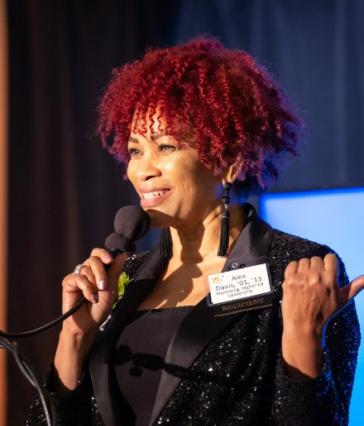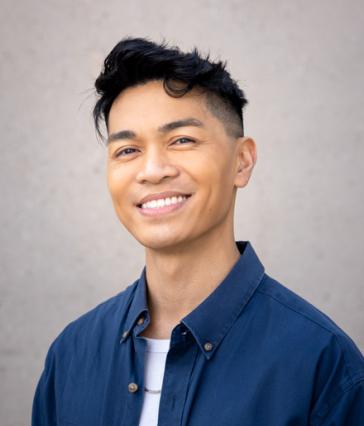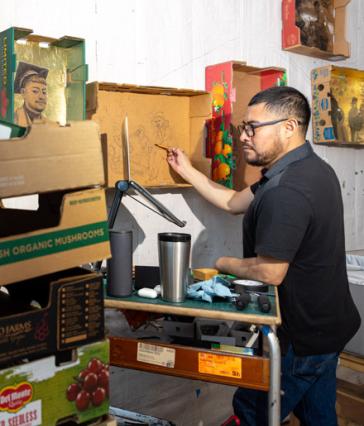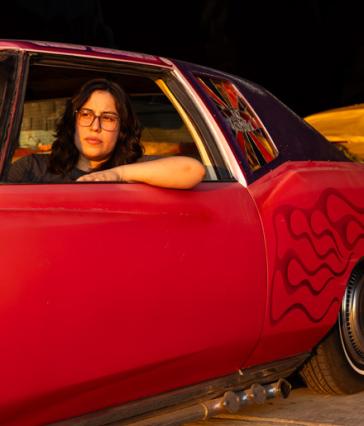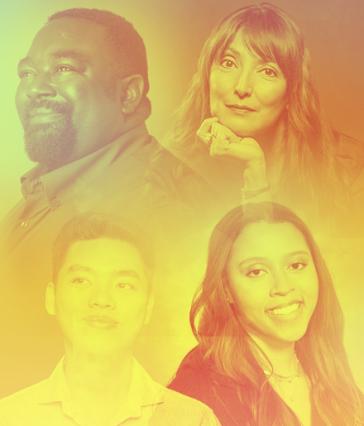Students build skills, portfolios as Beach Investment Group celebrates 30 years of growth
For three decades, Cal State Long Beach has challenged finance-minded students to invest actual dollars on behalf of real-life clients.
"It’s single-handedly the best thing you can do for your college experience as a college student,” Kevin Pichardo ‘17 said. “Getting to manage a real money portfolio, it’s not an experience that you’re going to find elsewhere.”
The Beach Investment Group, or BIG program, is now in its 30th year of offering opportunities to carry out investment strategies over an academic year. The program started in 1995 with $50,000 as the Student-Managed Investment Fund and now empowers students to join teams managing one of four funds with a combined value of about $1.5 million.
College of Business Dean Mark Suazo revealed the funds’ value during a mid-October Fireside Chat at the Anna W. Ngai Alumni Center. The gathering assembled campus leaders, alumni and students for a panel discussion with Pichardo and three other alumni: Bridgett England ‘22, Briana Rico ‘16 and moderator Steve Price ‘05, who shared how BIG shaped their lives.
“I feel like I got a lot of knowledge from the program that I was able to bring into my internship, which then led to my current role,” said England, now a wealth management analyst for The Shadden Group at Morgan Stanley.
Getting real
BIG’s value rests on three pillars: a focus on clients, research and education, said associate professor of finance Peter Ammermann, who is also the program’s director. Participants develop a meaningful understanding of client priorities, investigate real-world market data instead of relying on textbook exercises and build relationships over the course of a shared learning experience.
“Reflecting all the hard work they do, there is a sense of camaraderie that develops, which can lead to more cohesiveness and a greater sense of identity with the alumni of the program, as well,” Ammermann said. “This, in turn, can help when the current students graduate, and it becomes time for them to look for job.”
BIG’s funds include a portfolio belonging to the CFA Society Orange County and Beach students compete annually with counterparts from other Southern California colleges and universities to manage real-money investments, said Paisley Nardini, current president of CFA Society Orange County and chair of its Student Managed Investment Fund program.
Nardini attested to the value of programs like BIG for college students preparing for financial careers.
“While in undergrad, I also had the opportunity to compete in a hands-on, experiential learning program which defined my career, allowing me to enter the industry with a greater understanding and contribution to the investment management industry on day one,” she said.
BIG Students also manage additional portfolios for three Beach affiliates: Associated Students, Inc., Beach Shops and the CSULB Research Foundation. A Beach Shops representative provided a rave review.
“The partnership between Beach Shops and BIG has proven beneficial on several fronts. The students have ably managed our investment fund and contributed additional returns back to our organization year after year. Beach Shops maintains other outside investment funds, and, in some years, the BIG students have outperformed our more experienced professional investment fund managers,” said Cyndi Farrington, bookstore services director for Beach Shops.
Farrington also named BIG as a beneficiary of her planned gift supporting business education.
“When considering how I wanted my planned gift to impact student learning, the BIG program was the first program that came to mind,” she said. “I know how important experiential learning is in the educational journey and I know the BIG program does an excellent job delivering this experience.”
BIG students take a special finance class and, as teammates, must achieve consensus on investment decisions, figure out how much risk they can stomach and produce ready-for-prime time presentations. And they have to do all of this while making sure they’re looking after their client’s best interests.
“You don’t have all the information you might want about what all the different stocks are worth, but, before you get to that question, you have to start with the more fundamental questions of, ‘What are the client’s needs?’ and ‘What collection of investments should I put together to best meet those needs?’” Ammermann said.
Inflection points
BIG can have a major influence on a student’s life path. Rico, one of the panelists, enrolled at The Beach with expectations of landing a job with a Big Four accounting firm. BIG instead set her on a course to working as an asset manager for Pacific Urban Investors, a real estate firm specializing in the apartment market.
A newcomer to portfolio management when she joined BIG, Rico initially tried to absorb knowledge from other students who had more familiarity with investing. Over time, she grew more confident in her ability to contribute to the team’s work.
“Looking back, it has developed me as a person to participate more in the decision-making in my current position,” she said in an interview.
Similarly, she said during the panel discussion that BIG-related travels to New York and Chicago aided her professional development.
“I had never been to either of these two places so that was huge, but also being around very likeminded individuals was amazing ... Now, I attend conferences regularly and I didn’t think that would be my life,” Rico said.
For Price, the moderator, BIG and a simultaneous internship with a nascent restaurant company helped him to start his business career. Although he had planned to follow the example set by his stockbroker father, who often discussed the markets over dinner, Price ventured toward entrepreneurship.
Price’s internship translated to an opportunity to become a founding partner with Lazy Dog Restaurants, which now has 50 eateries in eight states. He is now the Costa Mesa-based company’s chief financial officer and experiences gained through BIG, such as evaluating the consequences of business decisions, are relevant to his work.
“It’s always fun to kind of put your time capsule hat on and say, ‘Where do I see this in three years or five years?” Price said in an interview.
And of course, BIG alumni can work in finance. England is now a wealth management analyst at the same firm she interned with during her time with BIG during the 2021-22 academic year. COVID-19 was still affecting business, so England’s team researched such questions as whether a manufacturer that may have seemed be a solid investment opportunity could move raw materials to a production site.
That kind of complication added to the inherent challenges of being a part of a professional team – respectfully debating opposing ideas, time management and staying focused on the client’s objectives.
“I was more motivated to reach for that goal,” England said in an interview. “It was a healthy level of stress, not a timid stress.”
BIG can be intense and Pichardo, now a vice president and relationship manager for Banc of California, recounted a working Christmas Eve. He also told the Fireside Chat assembly that representing The Beach during an intercollegiate CFA Society Orange County competition was an experience he imagined being like an Olympian competing for Team USA. Although his team’s proposed investment strategies received the equivalent of a bronze medal, he told the audience that an eventual investment in tech firm Nvidia proved to be a winning move.
“Fast forward to the end of the semester ... we got to our presentation, and we had the best returns of any school there by a landslide, so that was my win,” Pichardo said.






